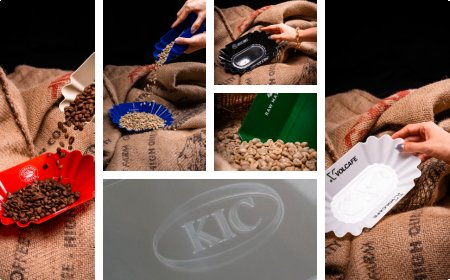How to Set Up a Tomato Processing Plant in India: Step-by-Step Guide
A tomato processing plant is a specialized facility designed for the industrial transformation of fresh tomatoes into various value-added products.
IMARC Groups Tomato Processing Plant Project Report 2025: Industry Trends, Plant Setup, Machinery, Raw Materials, Investment Opportunities, Cost and Revenue report provides a comprehensive guide on how to successfully set up atomato processing plant setup. The report offers clarifications on various aspects, such as unit operations, raw material requirements, utility supply, infrastructural needs, machinery models, labour necessities, transportation timelines, packaging costs, etc.
In addition to the operational aspects, the report also provides in-depth insights into tomato processing process, project economics, encompassing vital aspects such as capital investments, project funding, operating expenses, income and expenditure projections, fixed and variable costs, direct and indirect expenses, expected ROI, net present value (NPV), profit and loss account, and thorough financial analysis, among other crucial metrics. With this comprehensive roadmap, entrepreneurs and stakeholders can make informed decisions and venture into a successful tomato processing unit.
Request a Sample Report:https://www.imarcgroup.com/tomato-processing-plant-project-report/requestsample
What is Tomato Processing?
A tomato processing plant is a specialized facility designed for the industrial transformation of fresh tomatoes into various value-added products. These plants typically operate through a series of mechanized stages including washing, sorting, peeling, crushing, and concentrating to produce goods such as tomato paste, puree, ketchup, juice, sauces, and canned tomatoes. Advanced processing technologies, such as hot break and cold break systems, are used depending on the desired consistency and flavor of the final product. The equipment used in these plants includes pulpers, evaporators, sterilizers, and aseptic fillers, all engineered to maintain product quality and extend shelf life. Tomato processing plants often operate seasonally, aligning production with peak harvest periods to maximize efficiency and minimize raw material waste. These facilities are crucial in the agricultural value chain, enabling large-scale preservation and global distribution of tomato products. In addition to supplying the food industry, processed tomato products are used in institutional catering and food service sectors. Quality control, food safety regulations, and environmental sustainability practices are integral to modern tomato processing operations. The growth of such facilities supports rural economies, reduces post-harvest losses, and adds economic value to one of the worlds most widely consumed vegetables.
Market Trend and Drivers of Tomato Processing:
The tomato processing plant market is being driven by a combination of rising global demand for processed tomato products and advancements in food processing technologies. Growing urbanization and changing dietary habits have significantly increased the consumption of convenient, ready-to-use tomato-based items such as sauces, purees, and pastes. The expanding food service and fast food industries, especially in emerging markets, are further fueling demand. Additionally, the globalization of supply chains has allowed processed tomato products to reach international markets, boosting export opportunities for producing countries. Technological innovations in processing equipment have improved production efficiency, product quality, and shelf life, making operations more cost-effective and sustainable. Increasing awareness regarding food waste reduction has also led to the expansion of processing facilities to manage seasonal tomato gluts. Government support in the form of subsidies, infrastructure development, and favorable regulations has played a crucial role in the growth of this market. Moreover, health-conscious consumers are driving demand for natural, preservative-free tomato products, prompting manufacturers to adopt cleaner processing methods. Environmental concerns and the push for sustainable packaging are also influencing plant operations and investments. These factors collectively contribute to the robust expansion of the global tomato processing plant market across both developed and developing regions.
Key Aspects to Setup a Tomato Processing Plant:
- Location to Setup Plant
- Market Research
- Plant Layout
- Construction and Infrastructure
- Equipment/Machinery Procurement
- Documentation and Licenses
- Cost Analysis
Requirements to Setup a Facility:
- Funds
- Machinery
- Lands
Types of Costs to Setting up a Tomato Processing Factory:
- Land, Location and Site Development Cost
- Plant Layout Cost
- Machinery Requirements and Costs
- Raw Material Requirements and Costs
- Packaging Requirements and Costs
- Transportation Requirements and Costs
- Utility Requirements and Costs
- Human Resource Requirements and Costs
Project Economics:
- Capital Investments
- Operating Costs
- Expenditure Projections
- Revenue Projections
- Taxation and Depreciation
- Profit Projections
- Financial Analysis
Key Questions Answered in the Report:
- How has the tomato market performed so far and how will it perform in the coming years?
- What is the market segmentation of the global tomato market?
- What is the regional breakup of the global tomato market?
- What are the price trends of various feedstocks in the tomato industry?
- What is the structure of the tomato industry and who are the key players?
- What are the various unit operations involved in a tomato processing plant?
- What is the total size of land required for setting up a tomato processing plant?
- What is the layout of a tomato processing plant?
- What are the machinery requirements for setting up a tomato processing plant?
- What are the raw material requirements for setting up a tomato processing plant?
- And more
Ask Analyst for Customized Report:https://www.imarcgroup.com/request?type=report&id=8858&flag=C
How IMARC Can Help?
IMARC Group is a global management consulting firm that helps the worlds most ambitious changemakers to create a lasting impact. The company provide a comprehensive suite of market entry and expansion services. IMARC offerings include thorough market assessment, feasibility studies, company incorporation assistance, factory setup support, regulatory approvals and licensing navigation, branding, marketing and sales strategies, competitive landscape and benchmarking analyses, pricing and cost research, and procurement research.
Services:
- Plant Setup
- Factoring Auditing
- Regulatory Approvals, and Licensing
- Company Incorporation
- Incubation Services
- Recruitment Services
- Marketing and Sales
Contact Us:
IMARC Group
134 N 4th St. Brooklyn, NY 11249, USA
Email: sales@imarcgroup.com
Tel No:(D) +91 120 433 0800
United States: +1-631-791-1145




































